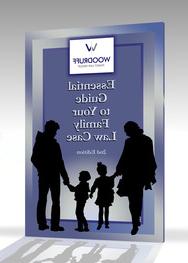Divorce and Closely Held Businesses, Including S and C Corporations and LLCS
Equitable distribution is a complicated process for many divorcing couples, but this is especially true for those that own a corporation or limited liability company. Our team of divorce lawyers in Greensboro, North Carolina, can guide you through the process of determining the value of your corporation or limited liability company.
Why is placing a value on these assets so difficult? Aside from the challenges of identifying marital versus separate property and the roles each spouse played in business operations, there is the added difficulty of determining a business valuation method. There is no standard valuation method in North Carolina, which means that deciding on the value can often come down to each party’s expert witness.
Stowe v. Stowe (NC App. 2020)Plaintiff Wife and Defendant Husband separated in September 2017, and an equitable distribution hearing took place in November 2018. The primary focus of this hearing was the couples’ sub-S corporation, an independent insurance agency they purchased during the marriage. In an effort to place a monetary value on the business, Wife hired an expert witness to evaluate it. In July 2018, the witness placed the business’ value at just over $531,000. In November 2018, his valuation of the business was just over $511,000.
In the expert’s letters regarding his conclusions on the value, he stated that he relied on incomplete records to arrive at the numbers. While the expert did provide some supporting documentation to show his calculations, he did not include anything to suggest he used Generally Accepted Accounting Principles in his preparation of the valuations. While testifying on his methods and calculations, the expert was provided with documentation showing that one method he used was specifically for Allstate-only insurance agencies despite the parties owning an independent agency.
Husband presented his own expert witness, but the court only admitted him as an expert in certified public accounting and not in business valuation or forensic accounting.
The trial court ruled that the value of the parties’ insurance agency was equal to Wife’s expert’s calculations from November 2018 and proceeded to divide the property accordingly. In his appeal, Husband claimed the trial court erred in not admitting his witness as an expert in business valuation and failing to appropriately value the business because incompetent evidence was used, along with two other claims.
The appellate court affirmed the lower court’s ruling on Husband’s expert witness but reversed the decision on the valuation of the business. When S-corporations are involved in equitable distribution in North Carolina, courts should make specific findings about the value of the professional practice along with the existence and value of intangible business assets, such as reputation. The Court of Appeals also stated that clear evidence supporting valuation methods should be provided in such cases.
Contact Woodruff Family Law Group to work with an experienced Greensboro divorce lawyer if you have a closely held business and are considering a divorce.

 Woodruff Family Law Group Home
Woodruff Family Law Group Home










